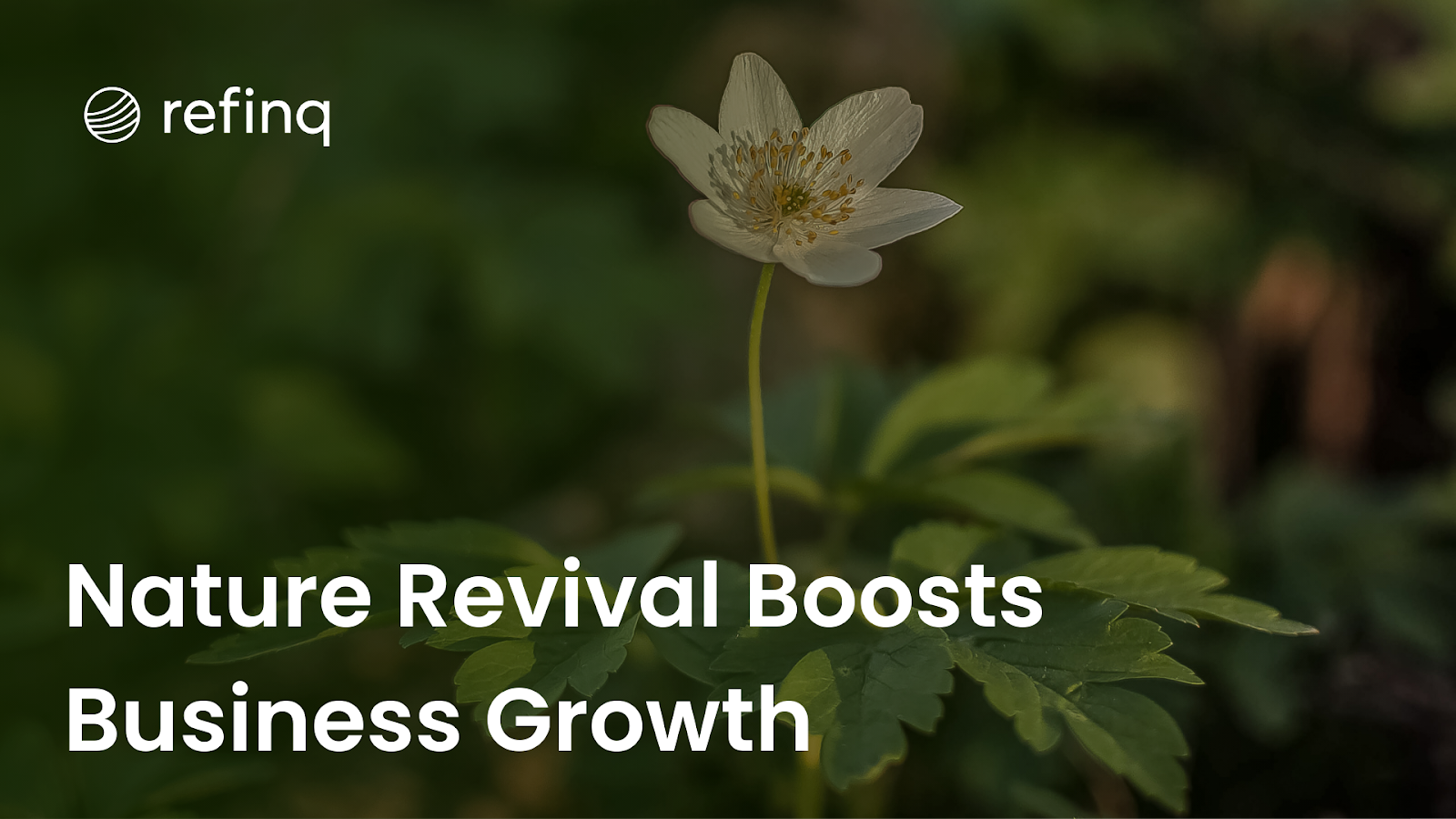

Businesses are increasingly recognizing the value of integrating nature revival strategies into their growth plans. Restoring ecosystems and investing in biodiversity can create sustainable business models, drive profit, and build resilience against climate and environmental risks. According to Earth Finance, companies that adopt nature-positive strategies not only enhance their environmental stewardship but also gain a competitive edge by aligning with global sustainability trends.
Solutions like refinq are instrumental in helping enterprises develop these strategies. By leveraging real-time data and advanced analytics, businesses can identify areas for intervention, mitigate risks, and align their operations with nature revival goals.
Nature revival strategies focus on restoring ecosystems, preserving biodiversity, and addressing the environmental impact of industrial activities. These strategies are essential for businesses to:
Mitigate Risks: Environmental degradation poses risks to supply chains, resource availability, and operational stability.
Enhance Reputation: Companies that prioritize sustainability gain public trust and consumer loyalty.
Unlock New Markets: Nature revival strategies open opportunities in sustainable products and services.
McKinsey highlights that businesses aligning their goals with environmental sustainability can outperform their competitors.
Adopting nature-positive practices includes activities like reforestation, habitat restoration, and waste reduction. According to Business for Nature, integrating these practices into business operations strengthens resilience while contributing to global biodiversity targets.
A sustainable supply chain reduces environmental impacts and secures resources for the long term. Tools like refinq empower businesses to evaluate the environmental footprint of their supply chains and prioritize actions that promote nature-positive outcomes.
Developing products that support environmental conservation, such as biodegradable materials or energy-efficient technologies, can drive revenue while aligning with nature revival objectives.
Consumers are increasingly choosing brands that prioritize sustainability. Nature revival initiatives demonstrate corporate responsibility, fostering trust and loyalty. For example, Business for Nature emphasizes how companies can leverage nature-positive actions to enhance their public image, aligning with customer values.
Moreover, refinq’s ability to provide detailed assessments of environmental impacts enables businesses to communicate their sustainability efforts transparently, further strengthening consumer trust.
Certain industries are ahead in adopting nature revival practices:
Retail: Companies are focusing on sustainable packaging and supply chain transparency.
Technology: Innovations in clean energy and resource-efficient products are driving growth.
Finance: Financial institutions are aligning investments with nature-positive outcomes, as highlighted by Earth Finance.
Regions with abundant natural resources and high biodiversity have seen significant impacts from nature-based initiatives. For instance, restoration projects in the Amazon rainforest are not only preserving ecosystems but also enabling sustainable business models. Faster Capital points out how businesses in these regions leverage nature revival to secure long-term profitability.
A circular economy focuses on minimizing waste by reusing and recycling materials. This model reduces dependency on finite resources and promotes environmental sustainability. Faster Capital explains how businesses can use circular strategies to remain competitive.
Platforms like refinq offer actionable insights into environmental risks, enabling companies to develop data-driven nature revival strategies. refinq’s tools help businesses comply with global reporting standards like the Taskforce on Nature-related Financial Disclosures (TNFD) and the European Sustainability Reporting Standards (ESRS).
refinq plays a crucial role in guiding businesses toward sustainable growth. By analyzing over 2.5 billion data points, refinq provides businesses with real-time insights into biodiversity risks and climate impacts. This helps enterprises:
Prioritize actions that yield the most significant environmental benefits.
Develop nature-positive strategies aligned with global frameworks.
Enhance resilience by forecasting risks based on diverse climate scenarios.
refinq’s geospatial and machine learning capabilities enable businesses to craft strategies that balance profitability with environmental stewardship. For example, the platform’s due diligence tools ensure that supply chain operations minimize environmental harm while maximizing sustainability.
Integrating nature revival strategies into business growth plans is no longer optional—it’s essential for future success. From mitigating risks to unlocking new markets, businesses that prioritize biodiversity and sustainability stand to gain both economically and environmentally. Solutions like refinq offer the expertise and tools required to navigate this transition effectively. By fostering a balance between profitability and ecological responsibility, companies can secure long-term growth while contributing positively to the planet.